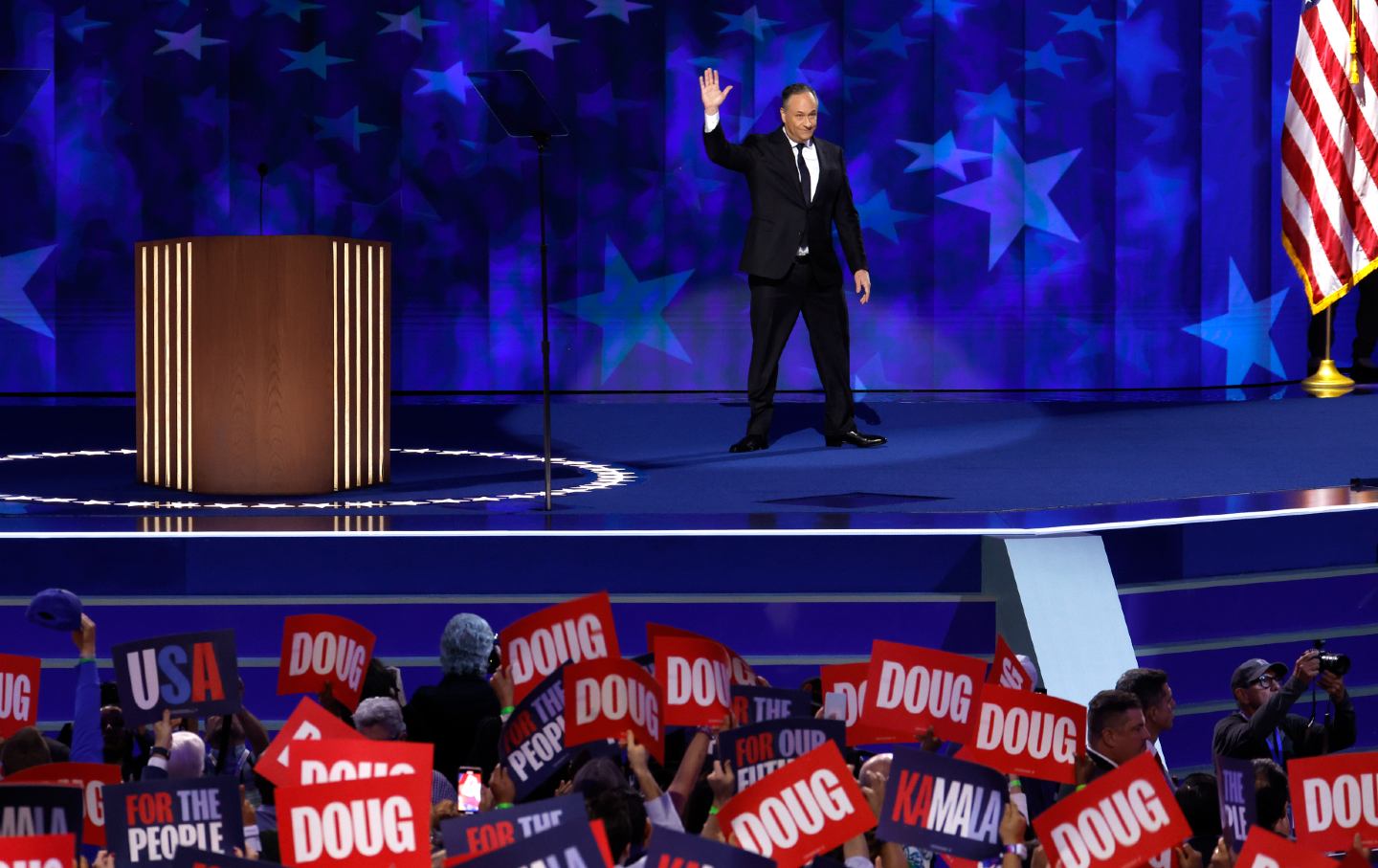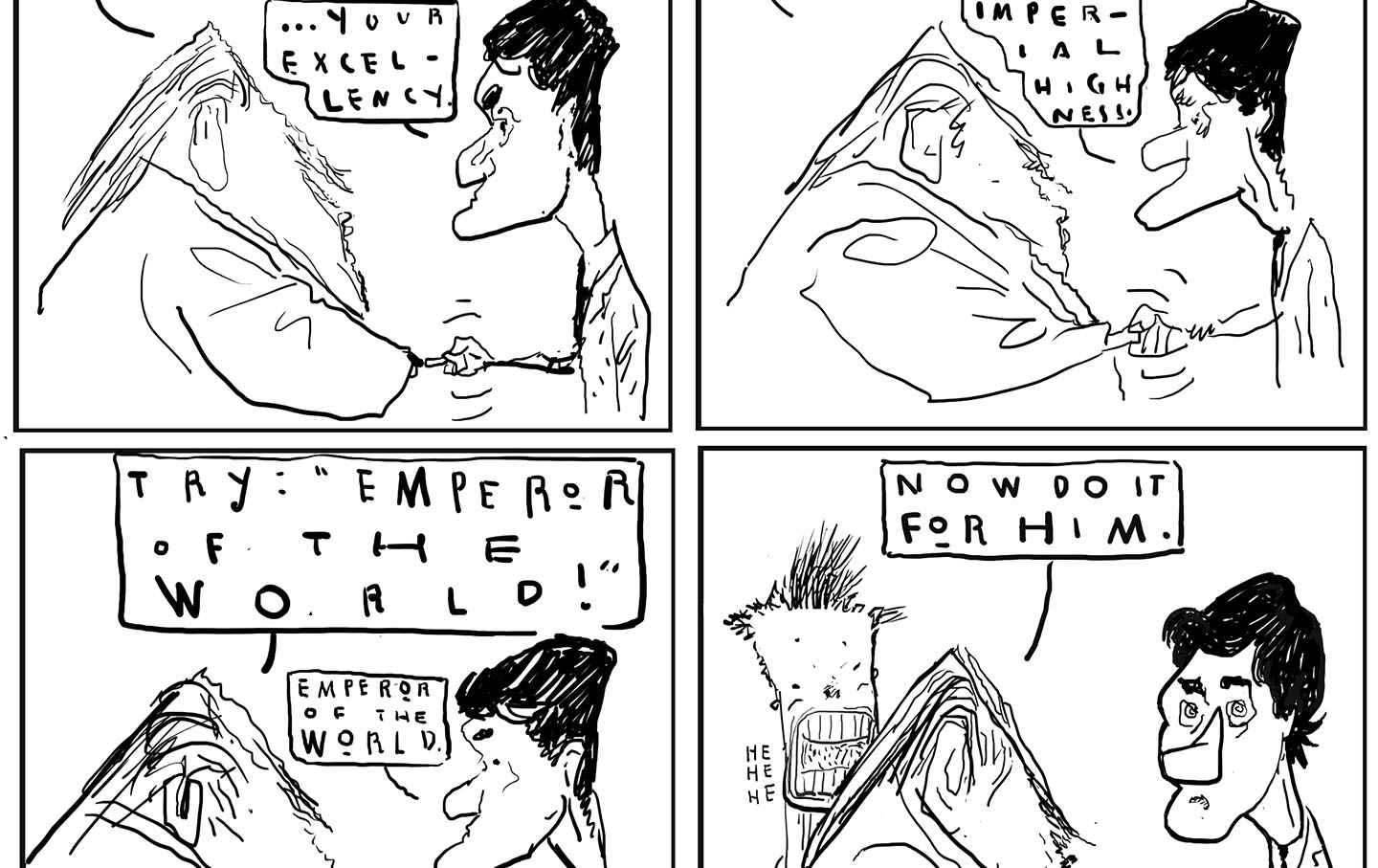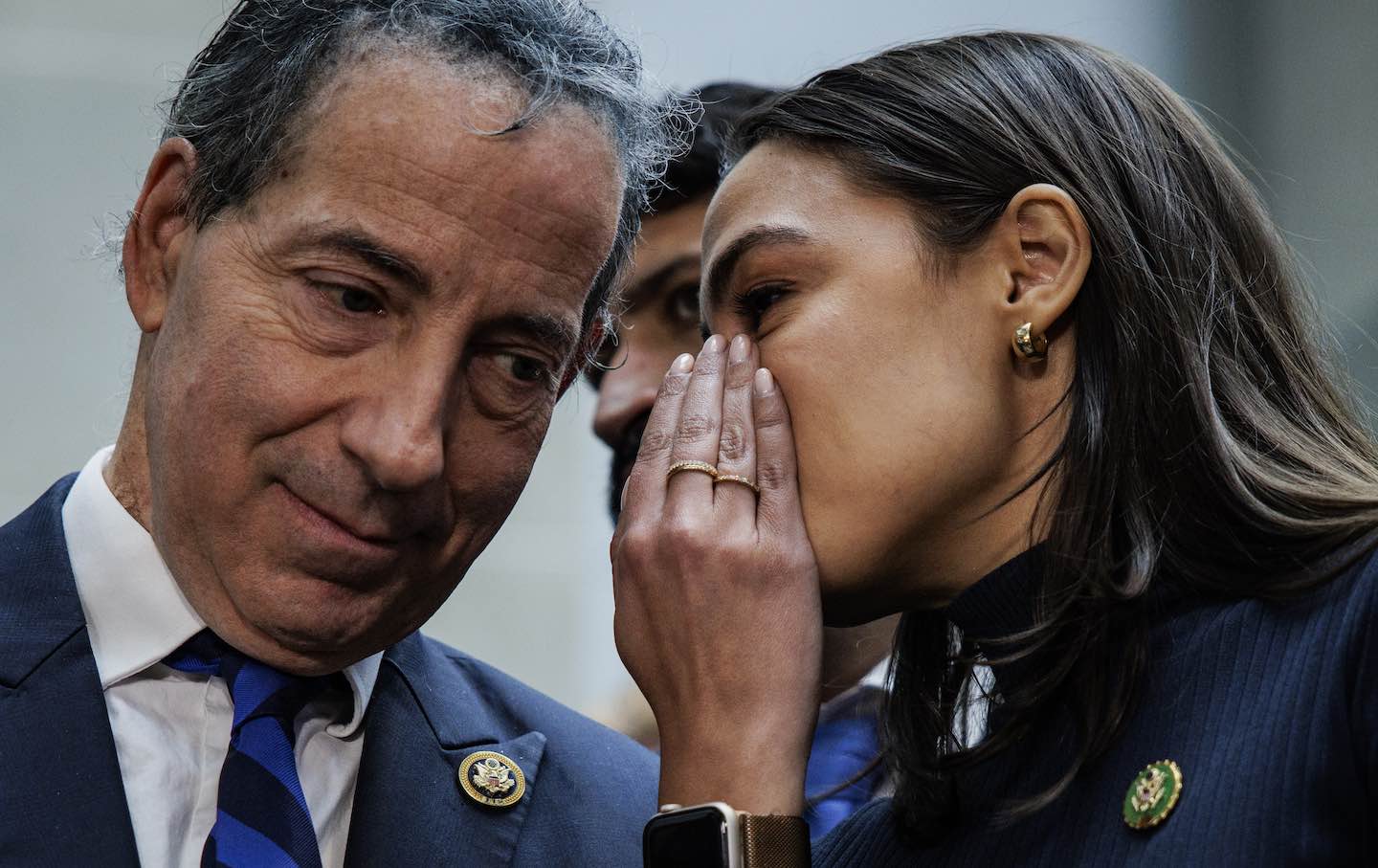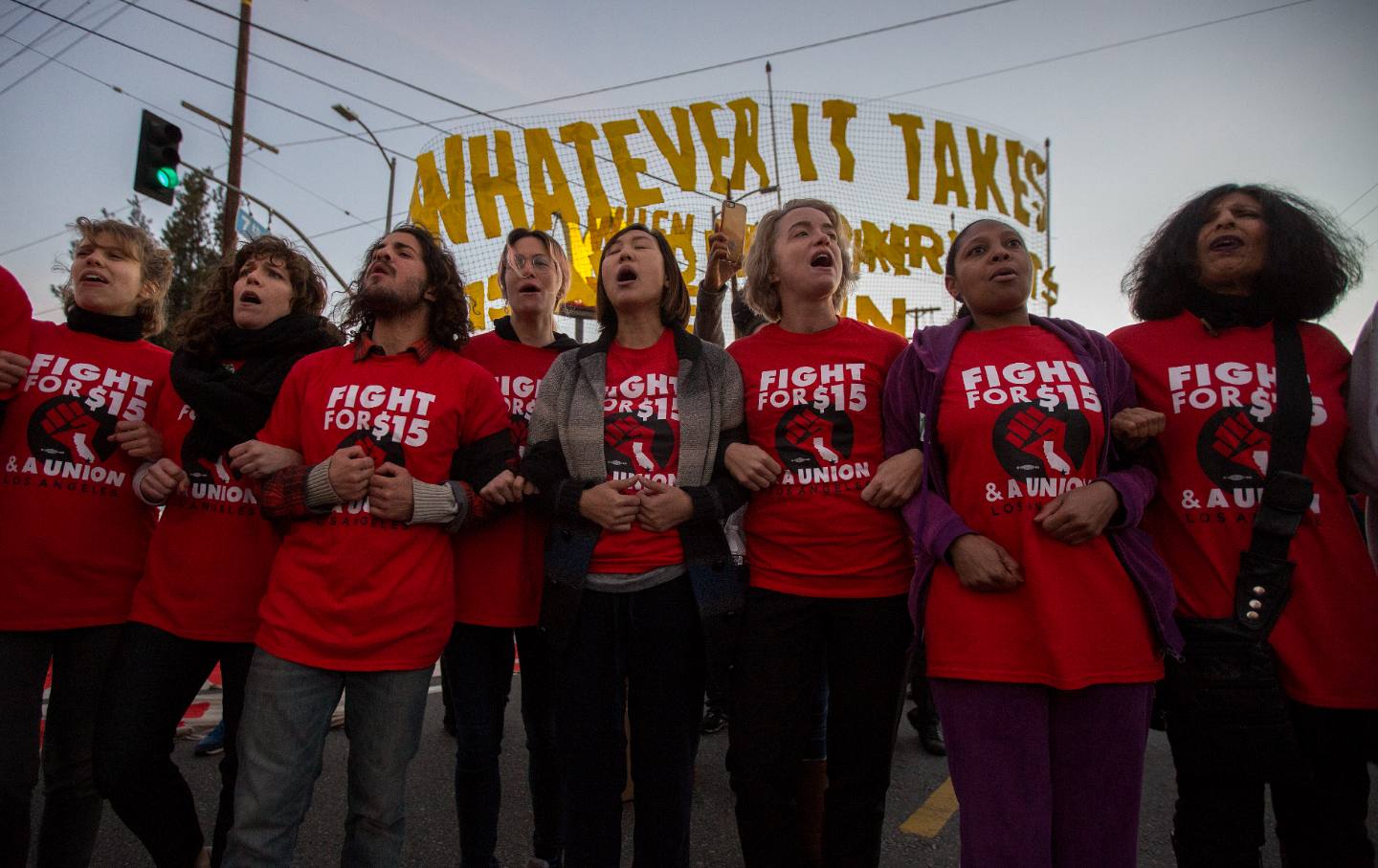The Secret Power of Doug Emhoff
The second gentlemen convincingly portrayed Kamala Harris as a joyful and tough warrior.

Second gentleman Doug Emhoff departs after speaking on stage during the second day of the Democratic National Convention at the United Center on August 20, 2024, in Chicago.
(Chip Somodevilla / Getty Images)
As husband to Kamala Harris, Doug Emhoff has a pioneering position in American politics. His title is “second gentleman,” an odd appellation in a nation that has never had a “first gentleman.” How is the spouse of the vice president (and quite possibly of the president) supposed to behave? The positions of first lady and second lady are themselves odd extra-constitutional constructs, socially important but hard to define and shaped by changing cultural expectations. Holders of the position have been as fiercely independent as Eleanor Roosevelt or as supinely domestic as Laura Bush.
On Tuesday night, Emhoff took the stage at the Democratic National Convention for an important speech. As the journalist Ronald Brownstein noted in The Atlantic, since Harris ascended to being the presumptive Democratic nominee without the rigors of a primary battle, she is largely a blank slate for much of the public. To be sure, Harris has held a prominent position as vice president. But being veep almost by definition means standing in the shadow as a loyal supporter of the president. As such, it didn’t provide Harris the chance define her own identity, although that began to change in recent months as Harris made reproductive rights her signature issue.
This means the main task of the convention is to create a plausible and appealing image of Harris that can win over the broader public. In terms of offering testimony about what Kamala Harris is really like, no one is more important than the person closest to her: her husband.
Emhoff pulled off the job with a warm account of his life, both before and after meeting Harris. He exuded an earnest, heartfelt love—all the more convincing for being, at times, awkward. He described Kamala as maternal in her love of her family but tough in pursuit of justice and opposing bullies.
During his speech, Emhoff underscored the relatable aspects of his life: a New Jersey Jewish childhood, Little League, Slurpees, lifelong friends who keep in touch via groupchats, working through university at menial jobs, starting a family and then divorcing.
At the start of his speech, Emhoff said, “Hello to my big, beautiful blended family up there.” This was one of the themes of his tribute to Harris, the way she was able to so effectively integrate herself into his family and become “Momala” to his son, Cole, and daughter, Ella. Both children were in the audience and acted as a silent chorus, nodding vigorously when Emhoff praised his wife.
Emhoff recounted their meet-cute story. He had been set up with Harris as a blind date by a client. As Emhoff told the story, he made the inexplicable decision to call her at 8:30 in the morning. “I got Kamala’s voicemail, and I just started rambling,” he recalled. He told his prospective date, “Hey, it’s Doug. I’m on my way to an early meeting. Again, it’s Doug.” Recalling this cringe-rich moment, Emhoff remembered, “I was trying to grab the words out of the air and just put them back in my mouth. For what seemed like far too many minutes, I hung up.” Emhoff added that Harris kept the voice message and plays it on their anniversary every year.
More from the DNC:
From this embarrassing moment, a happy marriage emerged. “Those of you who belong to blended families know they can be a little complicated,” Emhoff noted. “But as soon as our kids started calling her Momala, I knew that we would be OK. Ella calls us ‘the three-headed parenting machine.’” The successful blended family has a political as well as personal meaning, tied as it is to the Democratic message of cultural pluralism, inclusion, and acceptance of diversity. Emhoff said that just as Kamala joins him for the high holidays, he attends her church for Easter.
He described a scene where, amid the hubbub of becoming the Democratic Party’s presumptive nominee, he saw Kamala deep in conversation with daughter Ella. Emhoff told the crowd, “That is Kamala. Those kids are her priority. And that scene was a perfect map of her heart. She has always been there for our children, and I know she will be there for yours, too. Kamala is a joyful warrior.” He added, “Here is the thing about joyful warrior, they are still warriors. Kamala is as tough as it comes. Just ask the criminals, global gangsters, and witnesses before the Senate Judiciary Committee.”
Harris needed a testimonial that could fill in the blanks of her life story and help her come to life in the minds of voters. Emhoff more than filled the bill. His words about Harris conveyed a complex and real person, one with the qualities needed to be president.








